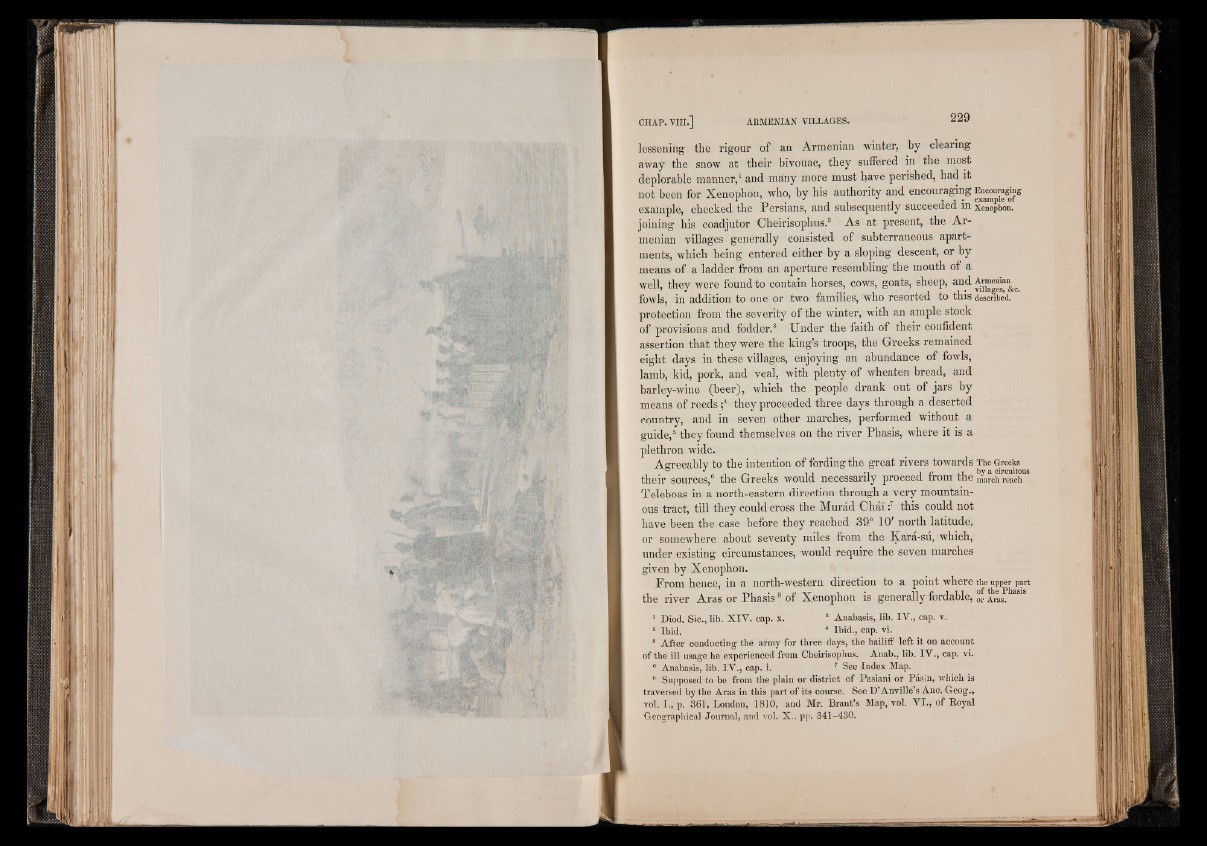
lessening the rigour of an Armenian winter, by clearing
away the snow at their bivouac, they suffered in the most
deplorable manner,1 and many more must have perished, had it
not been for Xenophon, who, by his authority and encouraging ^couragmg
example, checked the Persians, and subsequently succeeded in Xenophon,
joining his coadjutor Cheirisophus.2 As at present, the Armenian
villages generally consisted of subterraneous apartments,
which being entered either by a sloping descent, or by
means of a ladder from an aperture resembling the mouth of a
well, they were found to contain horses, cows, goats, sheep, and Amenum^
fowls, in addition to one or two families, who resorted to this described,
protection from the severity of the winter, with an ample stock
of provisions and fodder.3 Under the faith of their confident
assertion that they were the king’s troops, the Greeks remained
eight days in these villages, enjoying an abundance of fowls,
lamb, kid, pork, and veal, with plenty of wheaten bread, and
barley-wine (beer), which the people drank out of jars by
means of reeds ;4 they proceeded three days through a deserted
country, and in seven other marches, performed without a
guide,5 they found themselves on the river Phasis, where it is a
plethron wide.
Agreeably to the intention of fording the great rivers towards The Greets
their sources,6 the Greeks would necessardy proceed from the march reach
Teleboas in a north-eastern direction through a very mountainous
tract, till they could cross the Murad Chai :7 this could not
have been the case before they reached 39° 10' north latitude,
or somewhere about seventy miles from the Kara-su, which,
under existing circumstances, would require the seven marches
given by Xenophon.
From hence, in a north-western direction to a point where the upper part
the river Aras or Phasis8 of Xenophon is generally fordable, or Aras.
1 Diod. Sic., lib. X IV . cap. x. ! Anabasis, lib. IY ., cap. v.
» Ibid. 4 Ibid., cap. vi.
5 After conducting the army for three days, the bailiff left it on account
of the ill usage he experienced from Cheirisophus. Anab., lib. IV ., cap. vi.
6 Anabasis, lib. IY ., cap. i. 7 See Index Map.
8 Supposed to be from the plain or district of Pasiani or Pasin, which is
traversed by the Aras in this part of its course. See D ’Anville’s Anc, Geog.,
vol. I., p. 361, London, 1810, and Mr. Brant’s Map, vol. V I., of Royal
Geographical Journal, and vol. X., pp. 341-430.